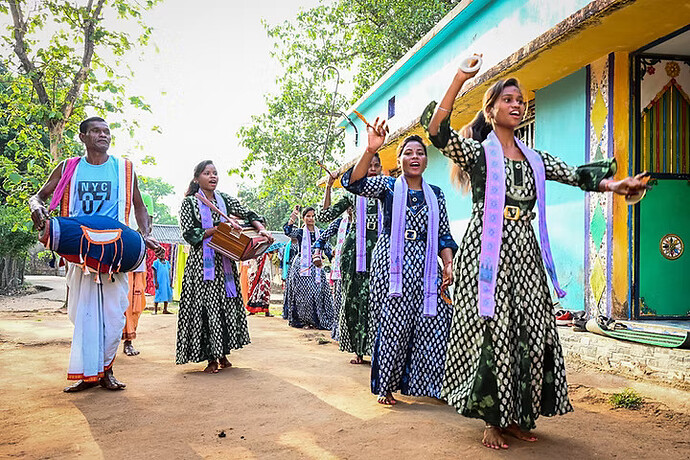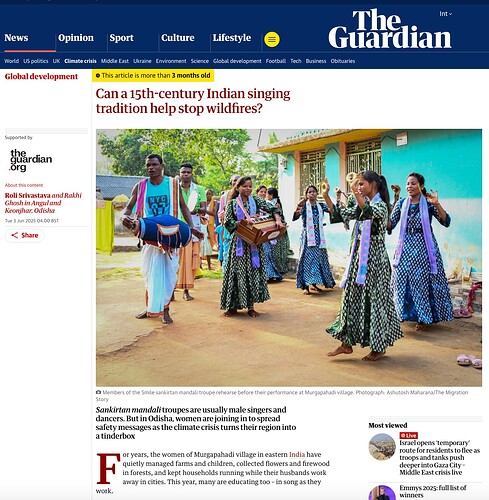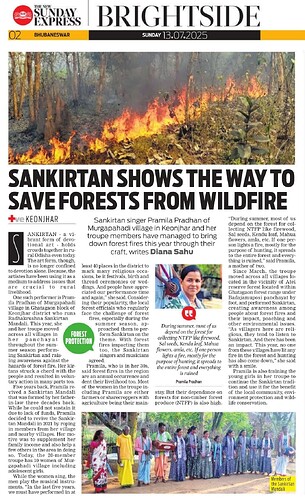In the hilly villages of Keonjhar district, Odisha, a centuries-old cultural tradition is being reimagined to protect forests and prevent fires.
The Sankirtan Mandalis, a devotional singing troupe traditionally led by men, have been reshaped by women to lead community-driven forest conservation. Using culturally rooted practices, these groups mobilise villages against methods such as leaf burning and deliberate fire-setting during Mahua flower collection.
Dressed in traditional attire, the women perform devotional songs and dances during festivals and village gatherings. The troupe has now begun using these spaces to spark conversations on the ecological and social impacts of forest fires. Their performances, deeply tied to local identities, attract a wide participation and foster dialogue on sustainable forest management.
Image source: Migration Story
Recognising this locally led effort, the Keonjhar Divisional Forest Office partnered with the Mandalis to strengthen fire-prevention initiatives. Led by Pramila Pradhan, the troupe performs in Murgapahadi village (Ghatagaon block) and moved across all villages near the Atei Reserve Forest in the Ghatagaon Forest Range, under Badajamuposi panchayat, across the entire panchayat through the summer fire season.
Moving from village to village, the group performs with drums, cymbals, and devotional songs whose lyrics have been adapted to warn against setting fire to dry leaves, hunting with fire, or burning scrub. The troupe combines music, rhythm, and storytelling to spread messages on how fires destroy forests, wildlife, and livelihoods, while urging collective responsibility to protect them.
Joint gatherings of community members, forest officials, and environmental practitioners created platforms for knowledge exchange and collective action, helping reduce forest fire incidents by 20–30% in some areas, with several villages voluntarily moving away from fire-based practices. According to the forest department, of the 600 forest fires overall in Keonjhar district, the Ghatagaon range (where Murgapahadi is located) saw only 26 incidents recorded this season, compared to more than 100 in earlier years.
This story emerged through a communicator network in Odisha, constituted by the partners of the Common Ground Initiative, led by Asar, SPREAD, and other field partners. It was documented by Bhubaneshwar-based communicator Rakhi Ghosh and Roli Srivastava from the Migration Story, and further amplified by partner organisations in other regional and national publications.
The narrative gained wider visibility with its publication in The Guardian, further enabling collaboration between communities and institutions.
The approach drew national attention in July 2025, when Prime Minister Narendra Modi highlighted it in his Mann ki Baat address, acknowledging the role of women-led cultural leadership in protecting forests.
What began as a culturally rooted practice has evolved into a place-based approach to Commons stewardship, linking community action, institutional engagement, and national recognition to strengthen collective governance of forests.
Story in the New Indian Express
Bhaskar English Story



